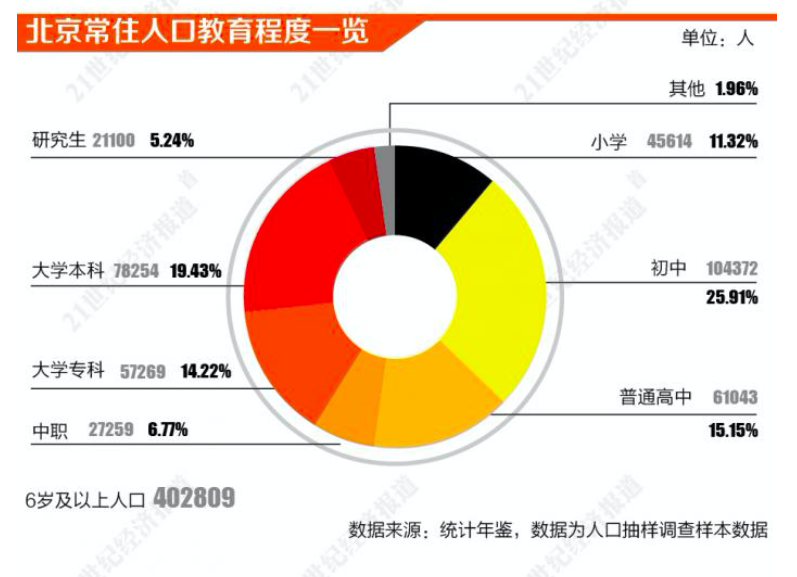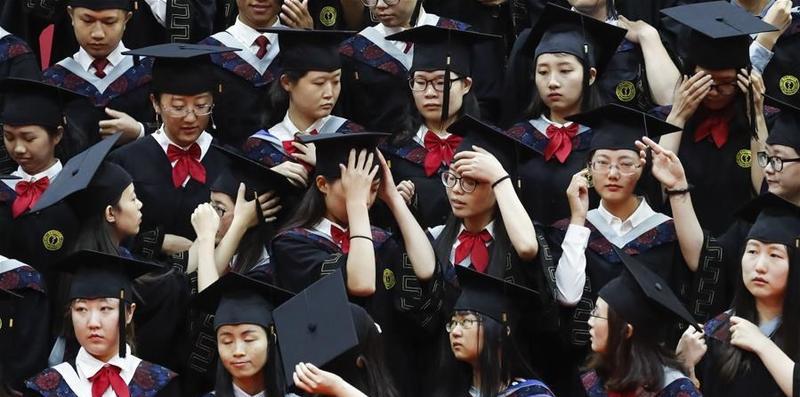Trending in Beijing: First Post-'20s Newborn, Flight Makes Emergency Return, and a Decade in Demographics
The fun, the strange, and the what-on-earth-is-this? Trending in Beijing is a wrap-up of top stories in Beijing as told by the trending hashtags, local press, and general power of the internet.
Beijing welcomes its first Beijinger of 2020!

Just 20 minutes after ringing in 2020, Beijing welcomed its first post-'20s newborn baby. The nearly 4kg baby boy was given the proper Beijing treatment, with his mom dubbing him "little fatty" (see screenshot above) before his first hour in this strange world was even over.
Jokes aside, the welcome was extended not only by the parents but a TV crew and the entire Chinese internet, since video of the birth (don't worry, nothing too explicit) has since gone viral and is widely available across Weibo. The parents described how they would have chosen the name Little Sesame (小芝麻) if their newborn was a girl. Instead, he has the pleasure of being called Little Naughty (小皮皮), since he was so active during pregnancy.
The father and mother of Little Naughty are 41 and 32 years old respectively, which quickly led to a heated discussion about the best age to have children. Even though many Chinese families are no longer rushing into having children early, parents of 40 years old or older are still said to have had 老来得子 lǎo láidé zi, with the children of such births considered more precious given the various complications that can arise.
Weibo users are sharing their best family planning tips under #北京妇产医院首个20后宝宝# (Beijing Maternity Hospital receives the first baby of 2020) with over 220 million readers.
Malaysia Airlines forced to return to Daxing Airport shortly after takeoff

The first day of the new year is never easy, but we count ourselves lucky enough not to have been on this Kuala Lumpur-bound flight.
At 10.38am on Jan 1, Malaysia Airlines flight MH319 took off from Beijing Daxing airport but instead of heading to Kuala Lumpur, was forced to circle multiple times to the southwest of the airport (video) before touching back down at Daxing at 1.14pm. Initially, it was unclear as to why the airplane was forced to turn back but the airline later disclosed that it was due to a mechanical failure on the aircraft. Witnesses described online how the flight was delayed for over an hour due to trouble closing the hatch, and after 10 minutes after take-off began to experience problems with the air conditioning as well as cabin pressurization.
The aircraft was repaired and passengers continued their journey on the same plane, finally landing in Kuala Lumpur around six hours late.
Given the airline in question, it was not long before talk on Weibo turned to the mysterious disappearance of Beijing-bound MH370 back in 2014. "Why do I feel frightened every time I hear 'Malaysia Airlines,'" rhetorically asked one user. Netizens are discussing the perceived risks of flying with Malaysia Airlines under #马航回应MH319起飞后返航# (Malaysia Airlines MH319 turns around after take-off).
Beijingers are old but highly educated

In preparation for the 7th National Census due to take place later this year, 21st Century Economic Research Institute has preemptively released its decade-long findings, spanning 2008-2018, on the citizens of the Beijing-Tianjin-Hebei (京津冀 jīng jīn jì) region.
While population growth has been significant in all three areas over the past 10 years, totaling over 130 million additional residents, Tianjin's overall population gain surpassed Beijing, acquiring 3.836 million new permanent residents compared to the capital's 3.832 million. This is reportedly due to Beijing's ongoing population control policies, which aim to keep the permanent residents' population fixed at 23 million. Tianjin then, given it's close proximity to Beijing, has become a suitable urban option for those forced out.
What it doesn't get in quantity, however, Beijing apparently makes up in quality. From the researcher's test group of 400,000 permanent residents over 6 years old, almost 25 percent held a bachelor's degree – a huge difference to the national average of 5 percent, and higher than in our friendly rival city of Shanghai.
The attempts to increase the population "quality" in Beijing, employing such drastic measures as demolishing migrant worker quarters, has not gone unnoticed. The report raises warning flags claiming that the city is not attracting enough low-income workforce because people simply cannot cover daily costs, which could lead to a shortage of service workers in the capital.
Join demographics discussions under #京津冀十年人口增长1300多万# (Jing-Jin-Ji population increased by more than 130 million in 10 years).
READ: Beijing-Zhangjiakou High-Speed Rail Opens, Shuangjing Line 7-10 Transfers Now Viable
Images: Weibo, China Daily







